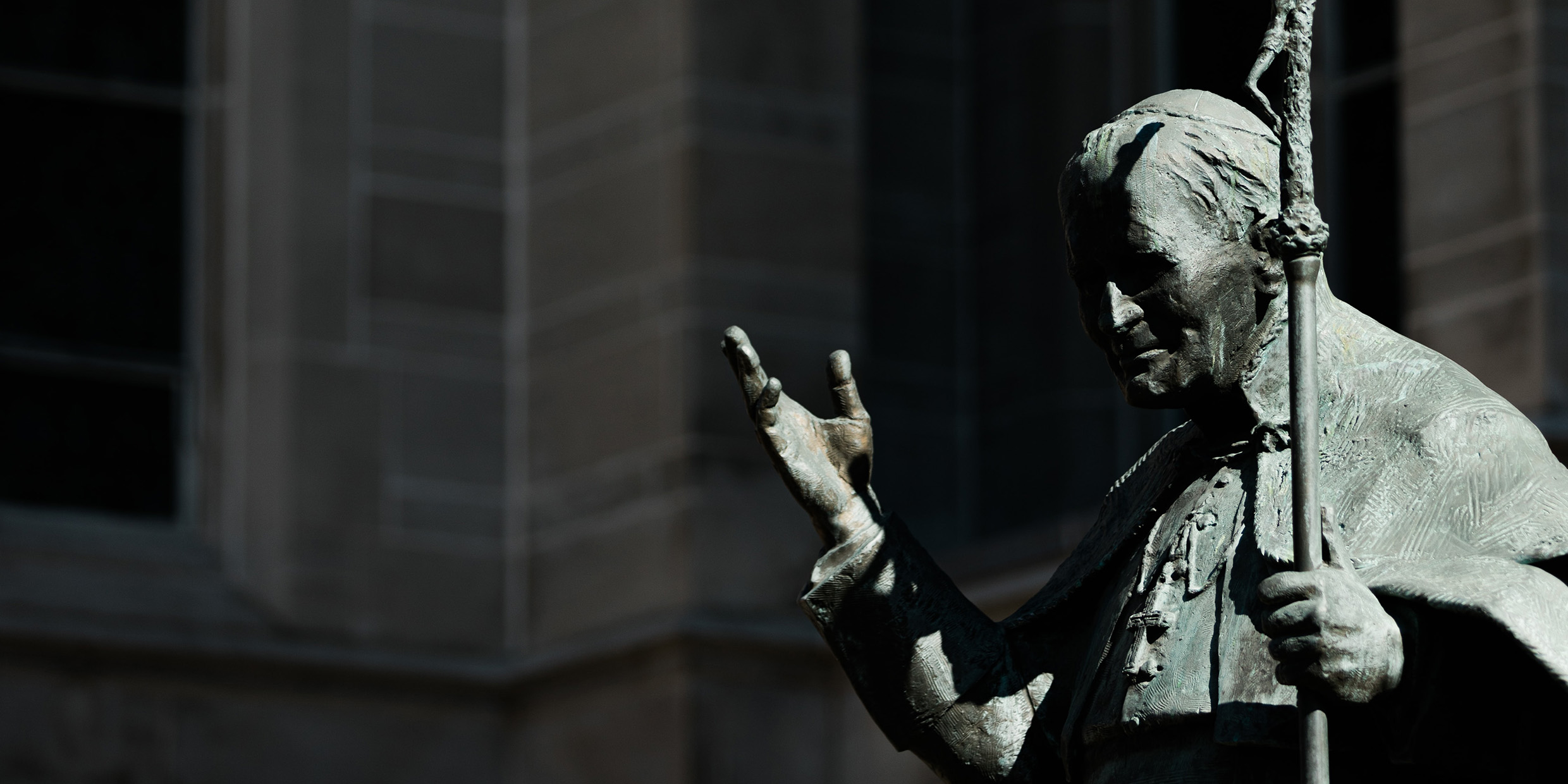Originally published 3 April 2005
So now we wait for a new Supreme Pontiff.
John Paul II will be hard to top. The man’s charisma, humility, and spirituality were mesmerizing. He was a great voice for building bridges between divergent communities, forthright and generous in acknowledging the Church’s past failings, a champion of the poor and marginalized. The world’s grief at his passing is evident and authentic.
As someone who was raised a Catholic and who retains a deep affection for the Church, I cannot help but be interested in the outcome of the papal election. If I cannot profess to be a Catholic today it is because I am unable to reconcile a modern scientific understanding of the world with a theology and a Creed that remains officially locked in medieval cosmology, miracles, and supernaturalism.
John Paul was notable in his embrace of modern science. He has gone on record that evolution is “more than a theory.” He welcomed Big Bang cosmology. And, as a symbolic act of reconciliation between science and faith, in 1992 he formally proclaimed that the Church erred in condemning Galileo. The condemnation of the great Florentine scientist resulted from a “tragic mutual incomprehension,” said the pope, and became a symbol of the Church’s “supposed rejection of scientific progress.”
Certainly, the condemnation of Galileo involved misunderstandings on both sides, but the phrase “mutual incomprehension” is not quite accurate. Galileo, at least, had a clear comprehension of the issue: In turning its back on the new science the Church risked undermining its moral and intellectual authority.
The Church’s rejection of science was more than “supposed”; it was, and remains, very real. In spite of the pope’s outreach to the scientific community, the Church has been slow to understand the theological implications of the scientific world view. The Church’s truce with modern cosmology and biology is uneasy at best, although certainly more enlightened than the outright rejection by fundamentalist faiths.
Molecular biology and neuroscience are emerging arenas of potential conflict between the Church and science. Before the end of this century biologists will almost certainly create living organisms from inanimate materials. Computers may become fully conscious, by any practical test of consciousness. Human self-awareness and memory will likely yield to scientific analysis. All of these developments will present problems for a theology still firmly grounded in medieval body/soul dualism. In this, as in many aspects of Roman Catholic theology, it’s as if the Scientific Revolution never happened.
This much is true: for better or worse, our global civilization is based on the scientific way of knowing, but the Church remains locked in a world view that is essentially not much different from what we find in Dante’s 13th-century Divine Comedy.
The task of the Church today is to eschew miracles, magic, and body/soul dualism, to embrace unreservedly our most reliable contemporary knowledge of the world, to be a strong voice for the ethical application of scientific knowledge, to forego triumphalism for authentic ecumenism, to build bridges between faith communities, to welcome women fully into all aspects of ecclesiastical life, to champion the poor and dispossessed, to protect the Earth and all its creatures, to profess the sacredness of nature, and to cultivate a natural spirituality that will mitigate the excesses of power, greed and consumerist culture.
What are the chances that this will happen anytime soon? Essentially nil. Although many in the Church are sympathetic to a progressive agenda, they are vastly overwhelmed by the current worldwide trend towards conservative and evangelical expressions of traditional faith.
The photograph that accompanied the 1992 newspaper story about the church’s admission of error in the condemnation of Galileo showed John Paul II dressed in Renaissance garb sitting on a Renaissance throne in a Renaissance palace, surrounded by other men (no women) also dressed in Renaissance clothes. The photograph was symbolic: In spite of the pope’s cautious and carefully-worded proclamation to the contrary, orthodox theology and science remain essentially at odds.


